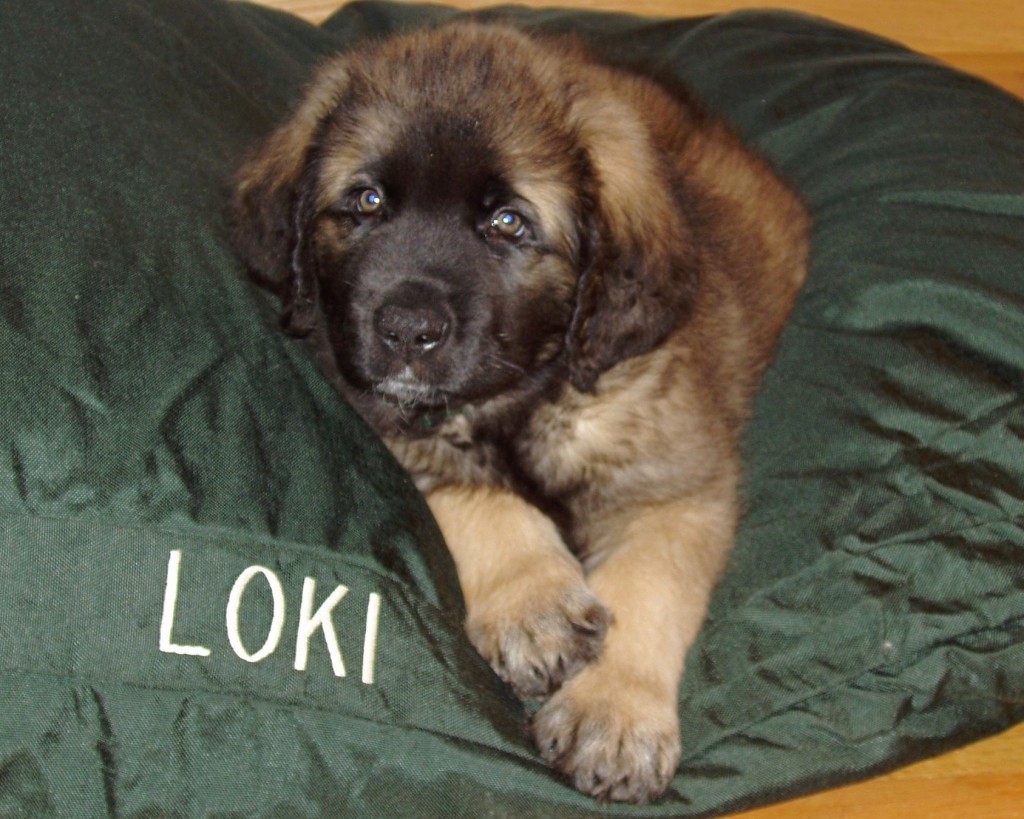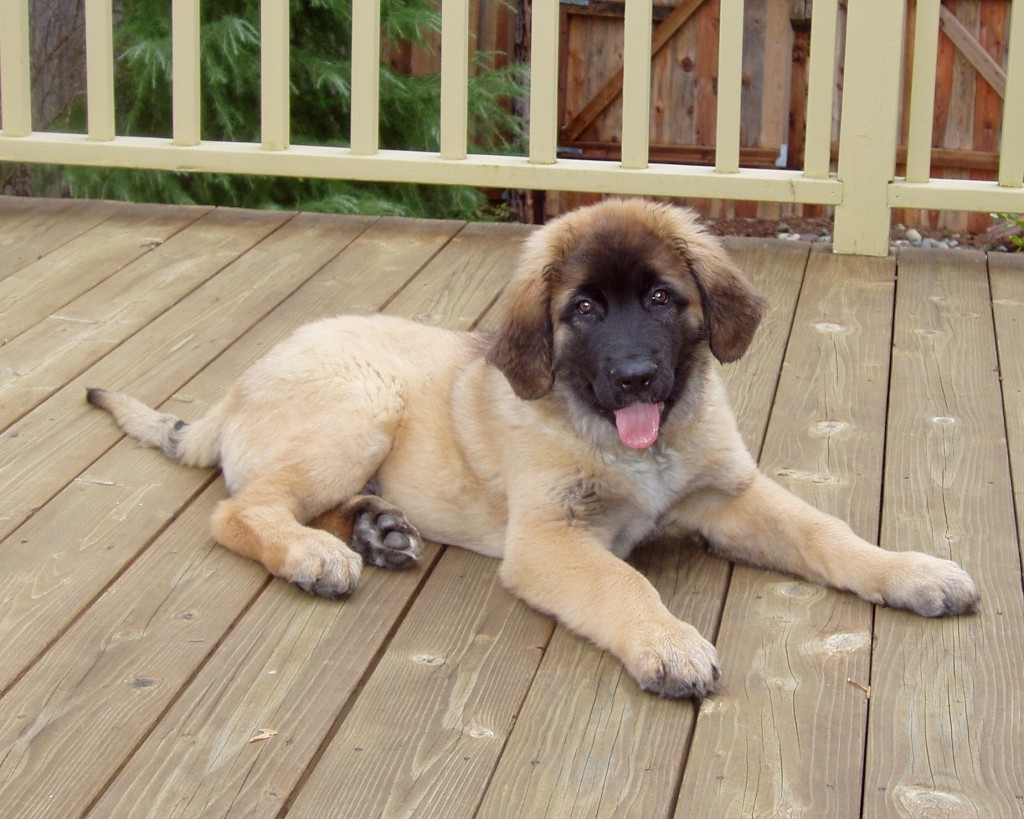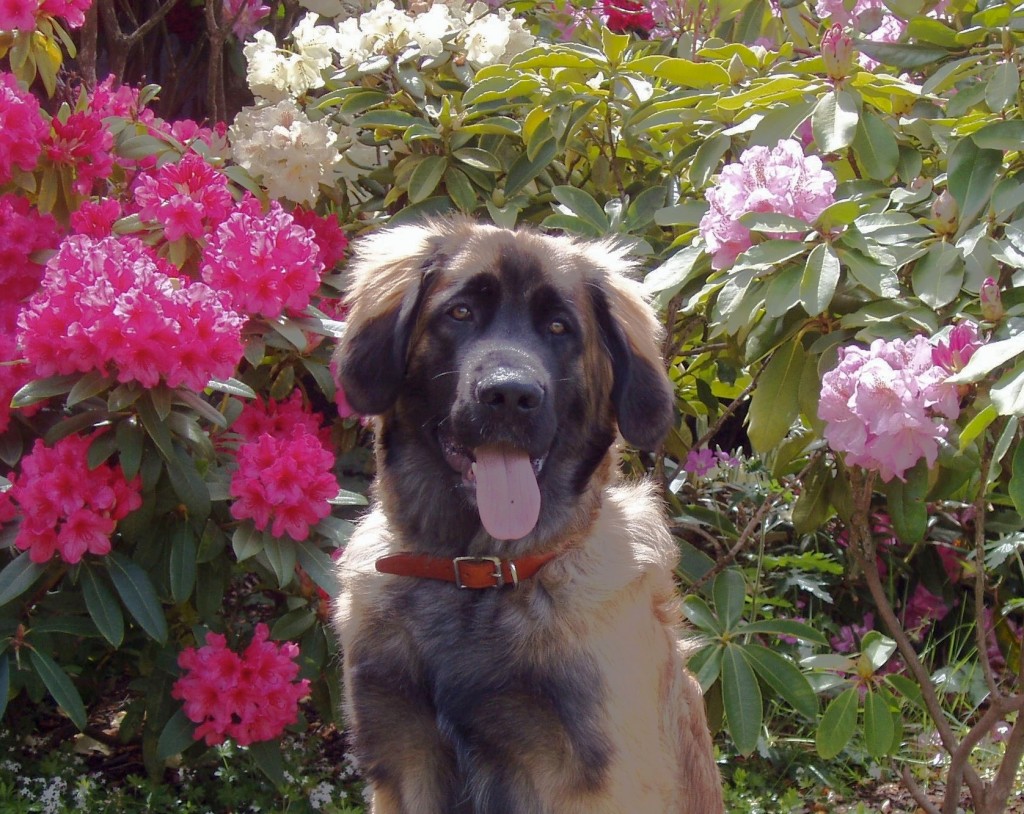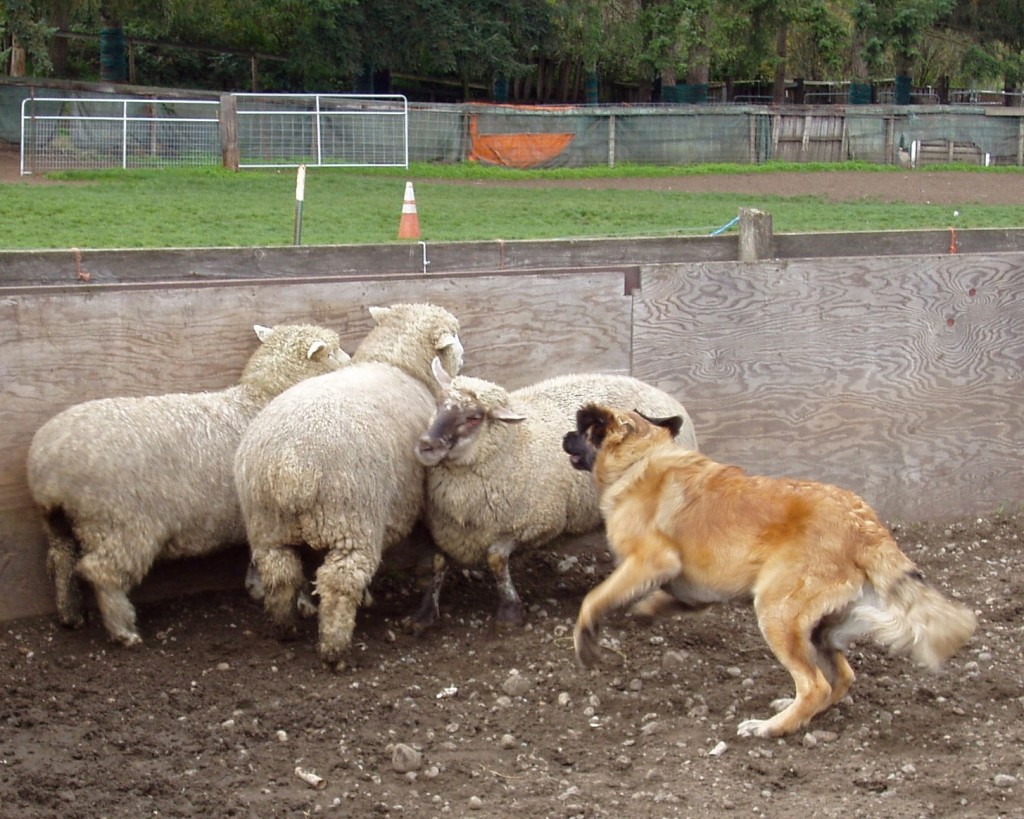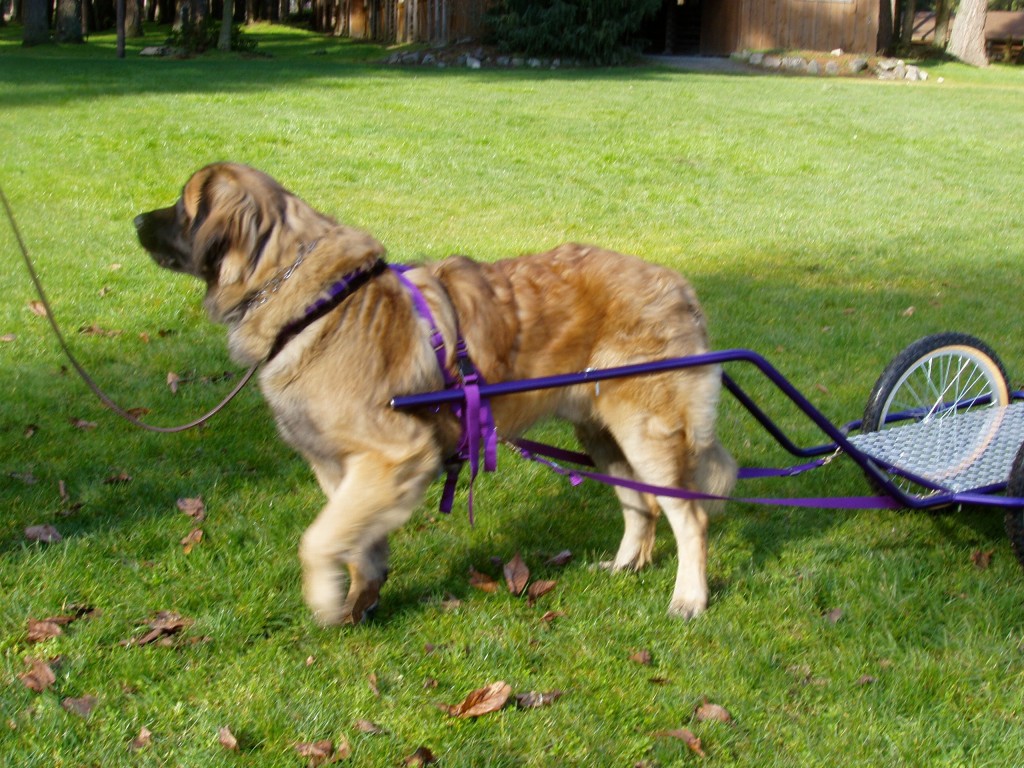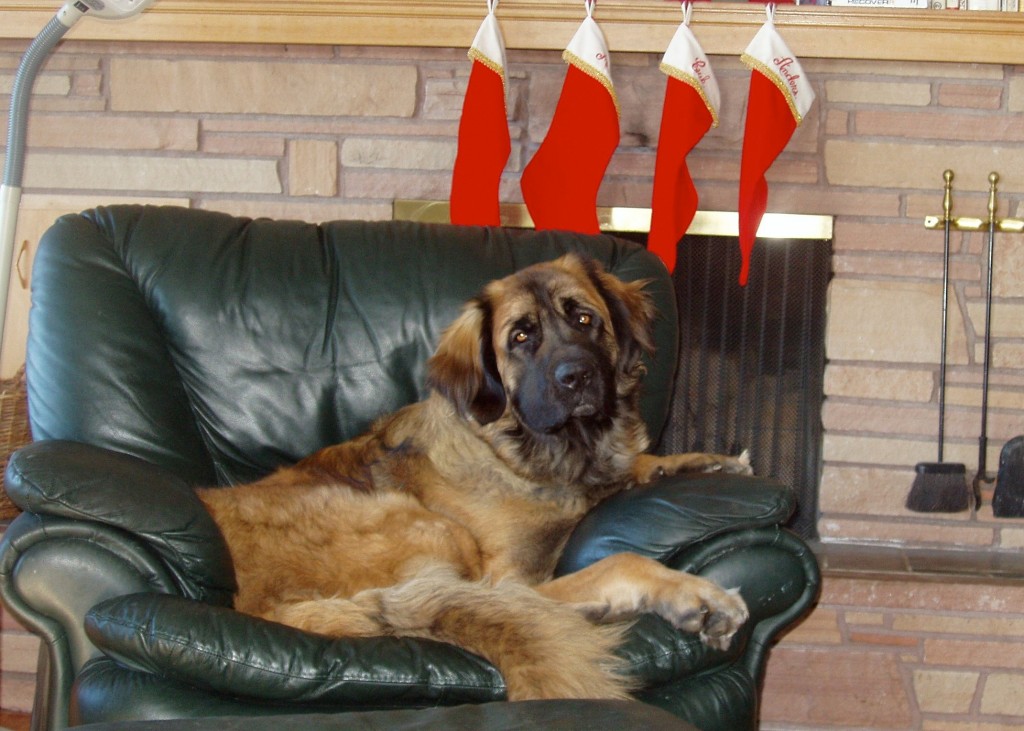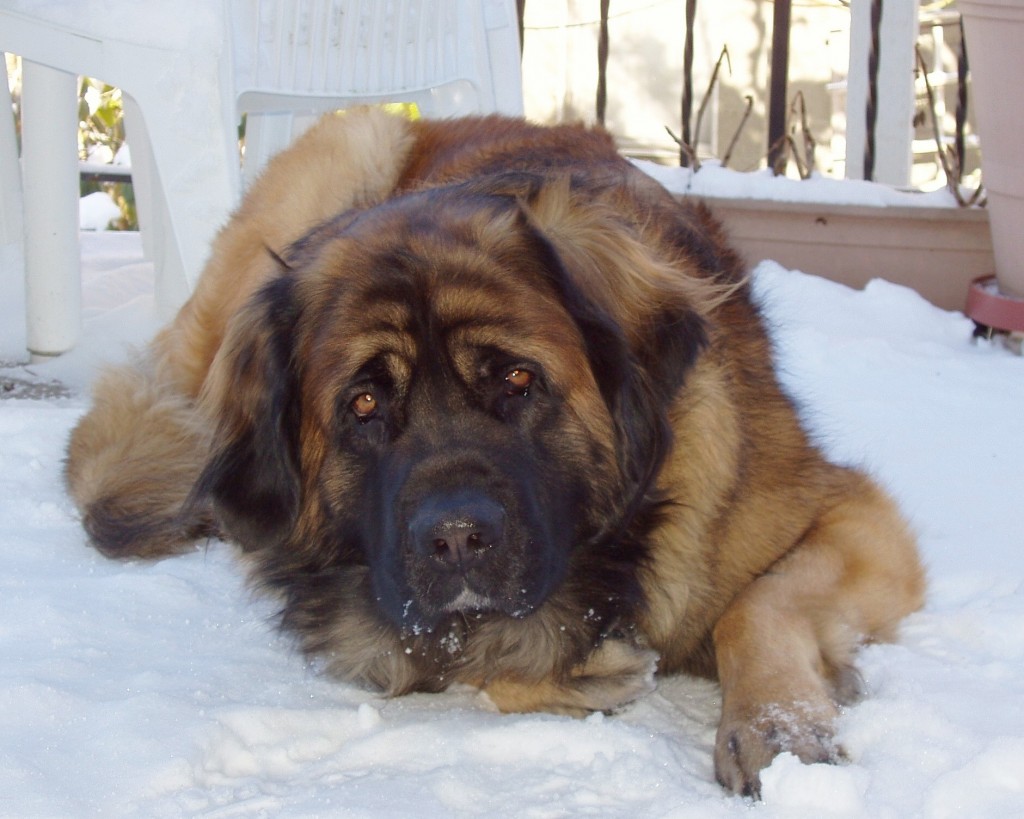Upon Losing a Beloved Family Dog
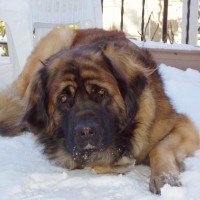
Words are deeply important to me. I make my living teaching, reading, writing, discussing. I love to study languages, and I have all kinds of dictionaries all over my bookshelves. I can easily spend half a day writing one short paragraph, choosing exactly the right noun or verb or adjective, listening inside my head to the cadence of a phrase, lovingly, maddeningly shaping, fine-tuning, assiduously refining words so that they come closest to expressing what I want to convey.
And yet, when stunned by the death of my beloved dog Loki, words fail me. Furthermore, I see – from reading the words of others who have grappled with their dogs’ deaths – that other writers have also come up against this dead end when trying to find the words to convey, with full emotion and honesty, the fullness of their love for their dog and their pain when the dog ceases to be a part of their daily life.
Here is what novelist and playwright John Galsworthy wrote about the deep, love-filled muteness shared by a dog and his loving human on those precious occasions when words would have been totally superfluous
For it is by muteness that a dog becomes for one so utterly beyond value; with him one is at peace, where words play no torturing tricks. When he just sits, loving, and knows that he is being loved, those are the moments that I think are precious to a dog; when, with his adoring soul coming through his eyes, he feels that you are really thinking of him….
That silence-full-of-communication is what I shared with Loki whenever I would give him his special hug. Standing on his right side, I would lean into his shoulder while hugging him around the neck. He, in turn would radiate his “adoring soul” right through his warm body, and we would stay locked like that for long, long seconds. No words. Just pure communion.
In the words of another writer, in the last stanza of a powerful poem titled “The House Dog’s Grave,” poet Robinson Jeffers gives voice in this way to the dog he imagines looking back through the veil of mortality at his human friend who, now living sadly without him, is mourning his death: “Deep love endures / To the end and far past the end.”
But how did this deep love, in our case, begin?
Ten years ago, an earlier heart dog – a Keeshond, rather than a Leonberger – had also died, leaving me bereft. Toward the end of this dog’s life we had talked about getting a new dog, not to replace Mac (for Mac was irreplaceable), but rather to enrich our lives in the way that only a dog can. He would be our dream dog, a Leonberger: a giant in body and soul, gentle, natural (no cut tail, cut ears, fancy haircut or painstakingly fussy grooming expectations), and a sweet-natured lover of all. When Loki’s mother gave birth to 10 puppies – 5 males and 5 females – and our breeder said Yes, we knew we had our puppy, and we only had to wait until he was old enough to come home with us.
What following next, of course, was growth. Certainly the little 22-pound ball of fluff we brought home grew in size more rapidly than we could believe possible.
But more than growing in size, Loki – and we – grew in our understanding of each other. Together we tried a number of special activities: a few dog shows, some basic obedience classes, a couple of lessons at a sheep herding clinic, and some longer-lasting, but ultimately discontinued lessons and experiences carting and tracking.
In between those well-intentioned activities that I embarked on to create special memories linking Loki and me, we were not even aware that a far more powerful, yet unnoticed kind of memory production was steadily and inexorably working behind the scenes to bind Loki ever more tightly into our lives. Unaware of the fusing power of quotidian sharing — the breakfast toast crusts expected by Loki and playfully tossed at him by me; the various time-of-day rituals acknowledged together by both my retired, home-with-the-dog husband and happily cared-for Loki; the sound of the leash being removed from its hook or the car keys being jingled as a prelude to a long walk in the park or on the salt-water beach with my sons and/or daughter-in-law – we simply lived an ordinary life as a family. We never really paid attention to the way the long, stable warp threads of our lives were being bound together with the weft fibers of Loki-ness.
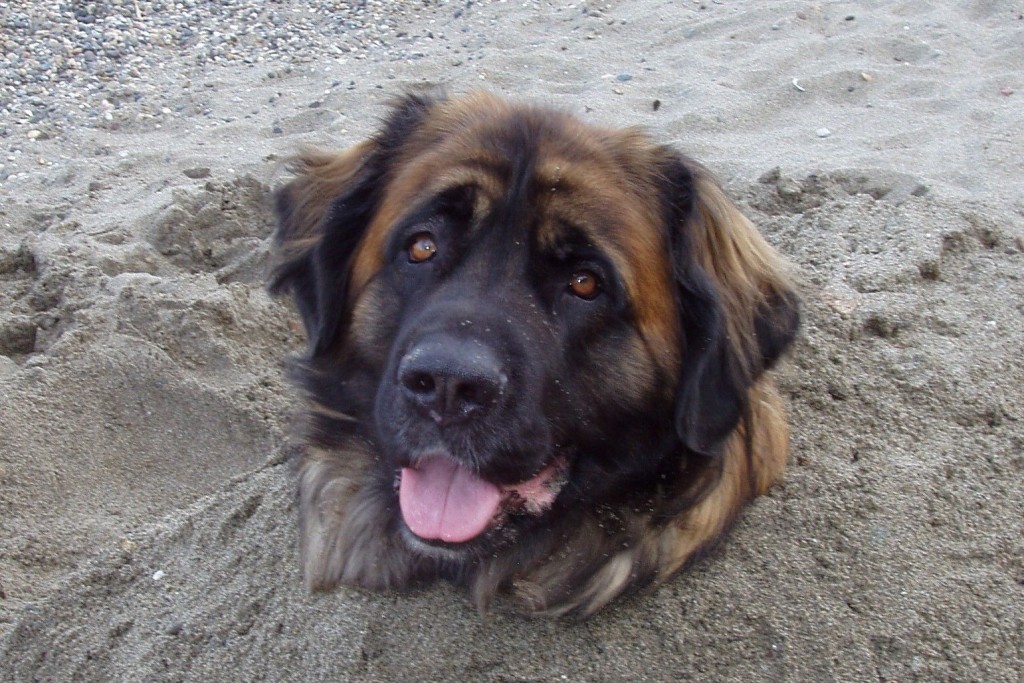
Goofball Loki happily buried in sand by my goofball son and daughter-in-law (Owens Beach, Point Defiance Park, Tacoma, Washington)
Years ago, when I did anthropological fieldwork among Tibetan refugees in India, I saw Tibetan weavers working at looms making their famous Tibetan wool carpets. Every time the shuttle would complete one horizontal pass, pulling the weft yarn in and out across the tightly stretched vertical warp fibers, the weavers would then go along the bottom of the frame of the loom, hitting the newly laid-down wool with a specially shaped wooden mallet to insure a tight weave. The sound of those mallets, which could be heard from outside the so-called “carpet factory”, was not unpleasant, but it certainly was noticeable. Pound, pound, pound; the artisans were being very deliberate in their attempts to leave little space between the weft fibers.
No such sound announced the growing tightness of Loki’s incorporation into our “weave”. He was just – Loki, a part of our family. And yet, even without any mallet pounding his threads into ours, he wove himself, in and out, into the fabric of our lives.
Our tactile sense can still feel the smooth, cool, round shape of his water bowl that always needed refilling, the braided finishing piece holding shut the hand-loop of his leash, the spring action of the brass bolt snap that we used to attach the leash to his collar, the velvet softness of the top of his head and muzzle. Our ears hear the click of his toenails on the floor, the one-two-three-four beat of his legs on the carpeted steps going up and down the stairs. We taste the piece of food from our plate that would go to Loki: a piece of gristly meat, a long string bean from the garden, laughingly eaten simultaneously from two ends, his and mine, like the strand of spaghetti in the dinner-date scene from the movie Lady and the Tramp.
When we see someone using a hose to water a garden, we smell Wet Dog – made all the more bearable by the sheer exuberant joy Loki would exhibit when, succumbing at last to his excitedly barked pleas, we would finally, laughingly, direct a stream of water from our garden hose directly into his expectant mouth. And we see him everywhere in his favorite spots: on the concrete patio next to the gate, on the cool grass just outside that gate, on the cool slate entryway tiles between the living and dining rooms, on his mat with his name embroidered on it, or on the green leather couch in the living room, often with our daughter-in-law’s stockinged feet on his back.
Did we know about the lifespan of a dog, particularly a giant-breed dog, before we got him? Yes, of course.
Did we accept, when Loki came to us as a fluffy little puppy, that he would likely die before any of us, leaving us with a violently sundered unravelling where those horizontal fibers had been pulled out of the fabric of our lives? Probably not.
John Galsworthy asks an even more heart-stabbing question in his essay “Memories”:
Do they know, as we do, that their time must come? Yes, they know, at rare moments. No other way can I interpret those pauses of his latter life, when, propped on his forefeet, he would sit for long minutes quite motionless–his head drooped, utterly withdrawn; then turn those eyes of his and look at me. That look said more plainly than all words could: “Yes, I know that I must go!”…
I think Loki did know that he would be leaving us, and I also think, on his last night, that he tried to tell us too. All his life, he was a magnificent communicator.
With his eyes staring right into my soul, with the subtly applied pressure of his lower jaw on my arm or knee, or by simply moving his body to stand silently next to my sleeping face, Loki could let me know, without any words or sounds, when he wanted or needed me to do something.
The night before he died, what we all needed to do was to say good-bye. At first oblivious to the enormity of what was about to happen, I began to get ready for bed, and in the process, snapped on his leash and tried to take him to the front of the house for a last pre-bedtime outing, but he would have none of it. It had been very hot that day, so when he plopped down on the north side of the lawn where the earth was finally cooling off, I initially thought he was just taking advantage of the welcome night air. But somehow, without making a sound, Loki brought me to my knees to join him on the ground, giving me a chance to offer him words and gestures of love and tenderness. After spending precious time just being with him, telling him how much I loved him, I went in the house to bring my older son out to do the same. And then I phoned my younger son to come over “to see Loki”. None of us more than dimly grasped at that point what was happening. Nevertheless, as Loki seemed less and less like himself, a phone call to the Emergency Animal Clinic followed, and then a midnight car trip. Shortly after ten the next morning, he was gone.
Why does it hurt so much to lose a dog like Loki? Why did I sob and weep more bitterly at his death than I did when key humans in my life have died?
Many dog lovers have pondered that question, focusing their thoughts on the absolutely non-conditional acceptance that a dog – unlike most people – gives those whom he loves. Moreover, the intensely lived and telescoped nature of a canine lifespan seems to concentrate the highs and the lows of dog/human interdependence and bonding. No wonder it hurts so much to have the fabric of our lives, shot through with very particular dog-love, torn asunder.
Robinson Jeffers addresses this question: How can a dog lover bear to endure the death of a beloved dog – by writing his poem not from the point of view of the grieving human, but rather, from that of the deeply philosophical dog. “A little dog would get tired, living so long [as you humans do].”
His words are well worth quoting in their entirely.
The House Dog’s Grave
Robinson Jeffers
I’ve changed my ways a little; I cannot now
Run with you in the evenings along the shore,
Except in a kind of dream; and you, if you dream a moment,
You see me there.So leave awhile the paw-marks on the front door
Where I used to scratch to go out or in,
And you’d soon open; leave on the kitchen floor
The marks of my drinking-pan.I cannot lie by your fire as I used to do
On the warm stone,
Nor at the foot of your bed; no, all the nights through
I lie alone.But your kind thought has laid me less than six feet
Outside your window where firelight so often plays,
And where you sit to read — and I fear often grieving for me —
Every night your lamplight lies on my place.You, man and woman, live so long, it is hard
To think of you ever dying.
A little dog would get tired, living so long.
I hope that when you are lyingUnder the ground like me your lives will appear
As good and joyful as mine.
No, dears, that’s too much hope: you are not so well cared for
As I have been.And never have known the passionate undivided
Fidelities that I knew.
Your minds are perhaps too active, too many-sided….
But to me you were true.You were never masters, but friends. I was your friend.
I loved you well, and was loved. Deep love endures
To the end and far past the end. If this is my end,
I am not lonely. I am not afraid. I am still yours.
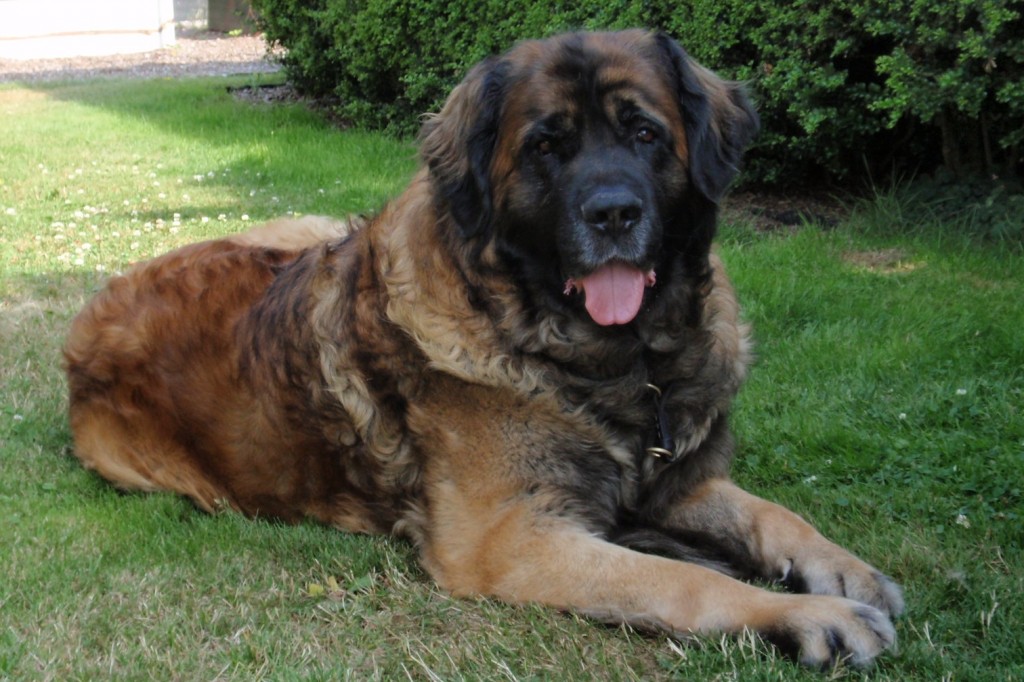
Loki
IABCA International Champion Idaho’s Laudable Loki vom Sanften Loewen
November 9, 2003 – July 2, 2013

